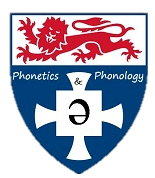-
News:
Accent Articulation Conference First Language Acquisition gamification Group focuses Job Laboratory Phonology Lecturer Linguistics Morphology Perception PhD Funding Phonetics Phonetics and Phonology Phonology Professor Project on Tyneside English Psycholinguistics R Research associate science open day Sociolinguistics Sociophonetics Speech Signal Analysis Speech signal processing statistics Workshop
Tag Archives: R
Job: Research Assistant (Laboratory Manager)
For current researchers in this area at the university you can see the Phonetics & Phonology research groups people page.Posted date: 23-Nov-2021Closing date: 7-Dec-2021 More Information Full job description can be found at here. The Role The School of Education, Communication and … Continue reading
Speech Signal Processing in R – student experience
Abdulrahman Dallak (IPhD Phonetics & Phonology) In this two-day workshop we covered some of the state-of-the-art techniques in processing and visualising acoustic and ultrasound data in R. Chris started the workshop talking about how he has been using these advanced … Continue reading
R Workshop on Speech Signal Analysis: Dr Chris Carignan #SpeechSignalR
updated 12 July 2021 We are very happy to announce that Dr Chris Carignan will be leading a workshop on speech signal analysis in R. The workshop will take place remotely via Zoom on 13th and 14th July 2021. Please … Continue reading

